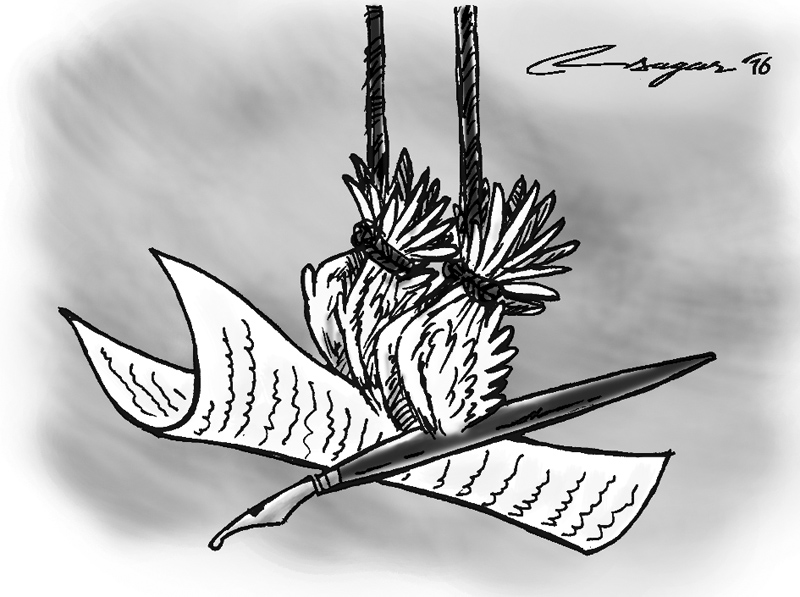Stakeholders express fear for press freedom
Kathmandu, August 18
Stakeholders have opposed some provisions of the new penal code related to defamation saying that journalists could be victimised and press freedom curtailed.
Section 307 of the new penal code states that if anybody is defamed through electronic or other media, then the perpetrator could face jail sentence not exceeding three years and fine not exceeding Rs 30,000 or both.
Similarly, section 294 stipulates that anybody who comes to know certain things during the discharge of his/her professional work should not reveal them except when compelled by law to do so; or permitted by the person concerned.
President of Federation of Nepali Journalists Govinda Acharya and Chief Executive Officer of Freedom Forum Taranath Dahal said the most annoying provisions of the new penal code were criminalisation of defamation and privacy issues.
Provisions 219 to 306 of the penal code have criminalised defamation and privacy issues, but the state must understand that journalists work for society, not for themselves. If they err, it should be civil offence or the matter should be handled by Press Council Nepal,” Acharya argued. He said the FNJ would pressure the government to remove restrictive provisions of the new law.
Dahal said, “If defamation is criminalised, the government could use the law to intimidate journalists.” He added that criminalisation meant journalists would be kept in custody the moment an FIR was registered against them.
While it may not be wise to criminalise defamation in some cases involving individuals, the same provision cannot be deemed appropriate for journalists, he argued.
Acting Chairperson of Nepal Press Council Kishor Shrestha said restrictive provisions against journalists and media outlets should be dropped and there should be a separate press law and press court to deal with journalists and media houses.
If journalists have to seek permission from the person concerned to print certain news of public value as Section 294 suggests, then s/he cannot do the job. He said 1,600 cases had been registered in Kathmandu valley under Electronic Transaction Act and if journalists were to be sued under the new penal code, it would open the floodgate. “The Electronic Transactions Act does not mention media or journalists anywhere, yet the government has been jailing journalists under this act. Journalist Sonu Kumar Shrestha of Kapilvastu, prosecuted under this act, has been in jail for the last one year,” he said.
Senior Advocate Chandra Kanta Gyawali, however, said the constitution had guaranteed full press freedom and the new penal code’s provisions related to right to privacy would not adversely impact press freedom.
Another Senior Advocate Surendra Kumar Mahto said Section 294, which journalists believed could restrict their freedom, would apply to doctor-patient like relations, not journalists.
Gyawali said both full press freedom and right to privacy were fundamental rights. “The press has the right to report on all issues that concern the public, that does not mean the press should report about individual’s private affairs,” he said.






